Comprehensive analysis to identify IL7R as a immunotherapy biomarker from pan-cancer analysis to in vitro validation
- PMID: 39347891
- PMCID: PMC11442881
- DOI: 10.1007/s12672-024-01357-7
Comprehensive analysis to identify IL7R as a immunotherapy biomarker from pan-cancer analysis to in vitro validation
Abstract
Background: Immunotherapy faces a major challenge in treatment resistance, highlighting the need for efficacy biomarkers identification. The tumor microenvironment (TME) significantly influences treatment outcomes, necessitating molecular TME exploration to address immunotherapy resistance.
Methods: The study initially pinpointed IL7R as a pivotal TME gene and then examined its impact on TME's CD8 + T cells at the single-cell level. Bulk-RNA analysis investigated IL7R function, immune cell infiltration related to IL7R in TCGA pan-cancer samples with its expression verified in clinical samples through immunohistochemistry. Genome instability and immune-related molecular expression associated with IL7R were also assessed. Furthermore, the clinical efficacy of IL7R was evaluated in various immunotherapy treatment cohorts.
Results: Our single-cell analyses and cell-cased experiment revealed that T cells with high IL7R expression tended to be non-terminal and correlated with favorable immunotherapy responses. High IL7R expression corresponded to increased immune and stromal cell signiture, immune pathway enrichment, and an immune-inflamed environment in Bulk-RNA analysis and immunohistochemistry verification. These patients exhibited higher proportions of memory T cells and M1 cells within the TME, along with frequent genome instability and immune molecular upregulation. While IL7R had varied prognostic impact across the TCGA dataset, patients with high IL7R expression showed extended survival under immunotherapy.
Conclusion: IL7R plays a critical role in shaping TME diversity across cancer types and holds promise as a relevant biomarker for predicting immunotherapy benefits.
Keywords: IL7R; Immunotherapy; Pan-cancer; T cell; Tumor microenvironment.
© 2024. The Author(s).
Conflict of interest statement
The authors declare no competing interests.
Figures
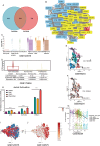
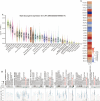
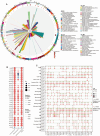

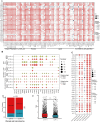
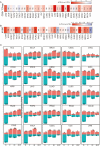
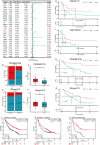
References
-
- Gu JY. Releasing the Brakes on cancer immunotherapy. Oncol Lett. 2015;373(16):1490–2. 10.1056/NEJMp1510079. - PubMed
-
- Bruni D, Schmid P, Adams S, Rugo HS, Schneeweiss A, Barrios CH, et al. Atezolizumab and Nab-paclitaxel in advanced triple-negative breast cancer. Nat Rev Drug Discovery. 2018. 10.1038/s41573-018-0007-y.10.1056/NEJMoa1809615. - PubMed
Grants and funding
LinkOut - more resources
Full Text Sources
Research Materials
